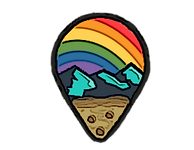
Your donation to the Montana Family Center is Tax Deductible. We are a 501-c-3 tax exempt charity
Domestic Violence Resources


If you live outside Montana OR your community is not listed below, please contact the National Domestic Abuse Hotline for help at 1-800-799-7233 Below is a partial list of Montana resources.
The YWCA’s Pathways Program offers shelter, crisis counseling and support for survivors of domestic and sexual violence, including the 24-hour crisis hotline; safe shelter for women, men and children fleeing abusive situations; walk-in peer counseling; weekly support groups; in-house short-term therapy; referrals to community resources; and legal, personal and medical advocacy. To find out more about your options, call the 24-hour crisis line: (406) 542-1944 or (800) 483-7858.
Ravalli County Twenty-Four Hour Crisis Hotline (406) 363-4600
National Domestic Violence Hotline (800) 799-SAFE
If you need help, have questions about violence and abuse or would like to know more about any SAFE service, our hotline is answered twenty-four hours a day, seven days a week.
Advocates are on-call 24 hours-a-day to support you, offer a listening ear, safety plan with you, and refer you to helpful community resources. If you suspect someone you know is struggling with domestic violence, encourage them to call us. If you need help, we are here for you. Make the call and open the door to all of the support & services our community has to offer. 406-752-7273
Montana Mediation Association (MtMA) is professional, non-profit association comprised of certified mediators and other neutrals and individuals dedicated to the principals of informed, consensual resolution of interpersonal conflicts.
A severe problem hiding in plain sight, human trafficking affects millions of people around the world – including many in our very own communities. It’s estimated that around 50 million people were victims of human trafficking in 2021 alone, with more than 10,000 situations reported to the United States Human Trafficking Hotline in this same year. The numbers, sadly, continue to rise. This link is to a site for Nurse Practitioners to learn more about their vital role in identifying and acting when patients show sigs of Human Trafficking and other forms of abuse to women and children.
Human trafficking is the illegal act of forcing people to work or perform other actions against their will. In some cases, it even involves forced marriage. It’s modern slavery, affecting people of all ages, nationalities, sexes, and backgrounds. Why should you care? Because human trafficking doesn’t just happen “somewhere else.” It can happen in our cities and our neighborhoods. Statistics show that many victims come into contact with healthcare professionals or are in school settings at some point during their situation, putting educators and healthcare workers in a unique position to help. Multiple studies have found that up to 88% of victims of human trafficking come into contact with the healthcare system while being trafficked. Women’s health nurse practitioners can help prevent human trafficking by understanding how to identify risks and connect services accordingly.
.png)